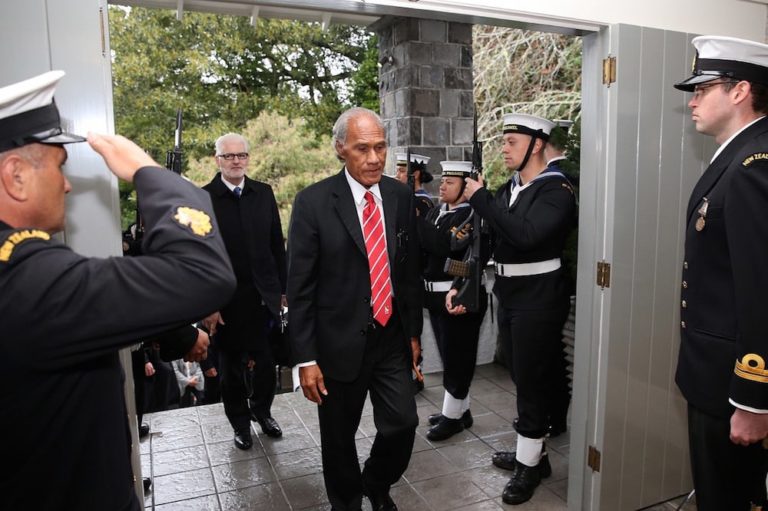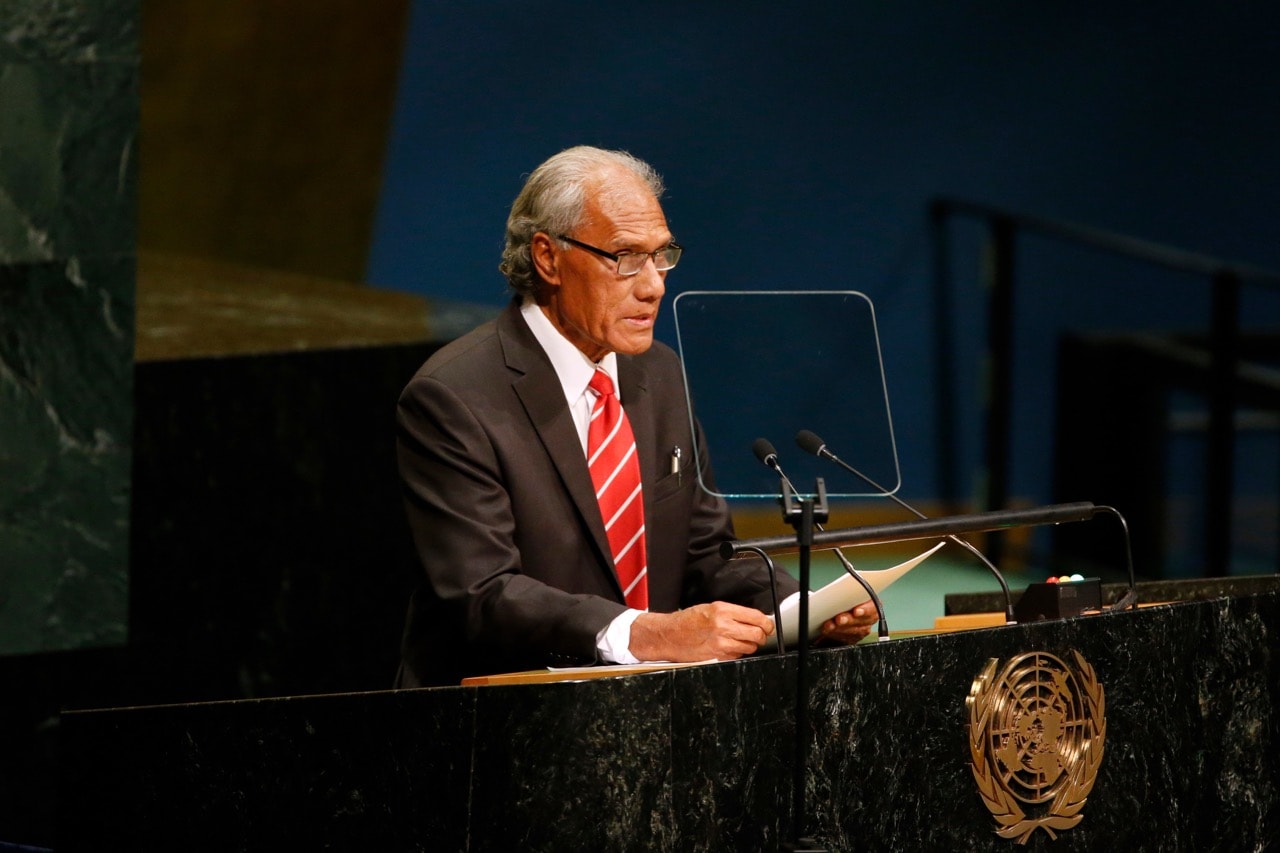(RSF/IFEX) – RSF has condemned the arrest of pro-democracy activist Alani Taione on 18 February 2004. Taione was arrested for distributing about 20 copies of the banned news weekly “Taimi ‘o Tonga” (“Times of Tonga”) upon his arrival in Tonga from New Zealand, where he resides. In open defiance of governmental censorship, Taione brandished a […]
(RSF/IFEX) – RSF has condemned the arrest of pro-democracy activist Alani Taione on 18 February 2004. Taione was arrested for distributing about 20 copies of the banned news weekly “Taimi ‘o Tonga” (“Times of Tonga”) upon his arrival in Tonga from New Zealand, where he resides.
In open defiance of governmental censorship, Taione brandished a copy of the news weekly in front of customs officials when he arrived at Tongatapu airport on 18 February and then handed out his remaining copies inside the airport. No one intervened at the time, but police arrested him a few hours later as he left his father’s funeral, which was the principal reason for his visit to the country.
Taione, a 38-year-old Tongan citizen who has lived in New Zealand since 1987, appeared before a judge on 19 February. He faces a possible prison sentence for “importing and circulating a banned publication”. “Taimi ‘o Tonga” is published in New Zealand.
RSF called on Tonga’s prime minister, Prince ‘Ulukalala Lavaka Ata, to release Taione immediately and drop the charges against him. “Taione’s arrest is a regrettable new phase in the gagging of the independent press that was ordered by King Taufa’ahau Tupou IV,” the organisation said.
BACKGROUND:
The government banned “Taimi ‘o Tonga” on 26 February 2003, accusing it of having a “political agenda” and “unacceptable journalistic standards” (see IFEX alerts of 18 and 17 February 2004, 12 December, 28 May, 7 April and 27 February 2003). The paper criticises the government and often carries reports about alleged corruption by the king and his close associates. Following a long battle with the Supreme Court, the king had the Constitution amended to institute a permanent ban.
The adoption of two new laws in 2003, the Newspaper Act and the Media Operators’ Act, has enabled the government to restrict the number of licences granted to privately-owned news media. Since 31 January 2004, the deadline for newspaper publishers to file their requests for a licence, the government had only approved requests from government and church newspapers. New Zealand’s Foreign Ministry has asked the Tongan government to reconsider its refusal to issue licences to at least three privately-owned publications.


